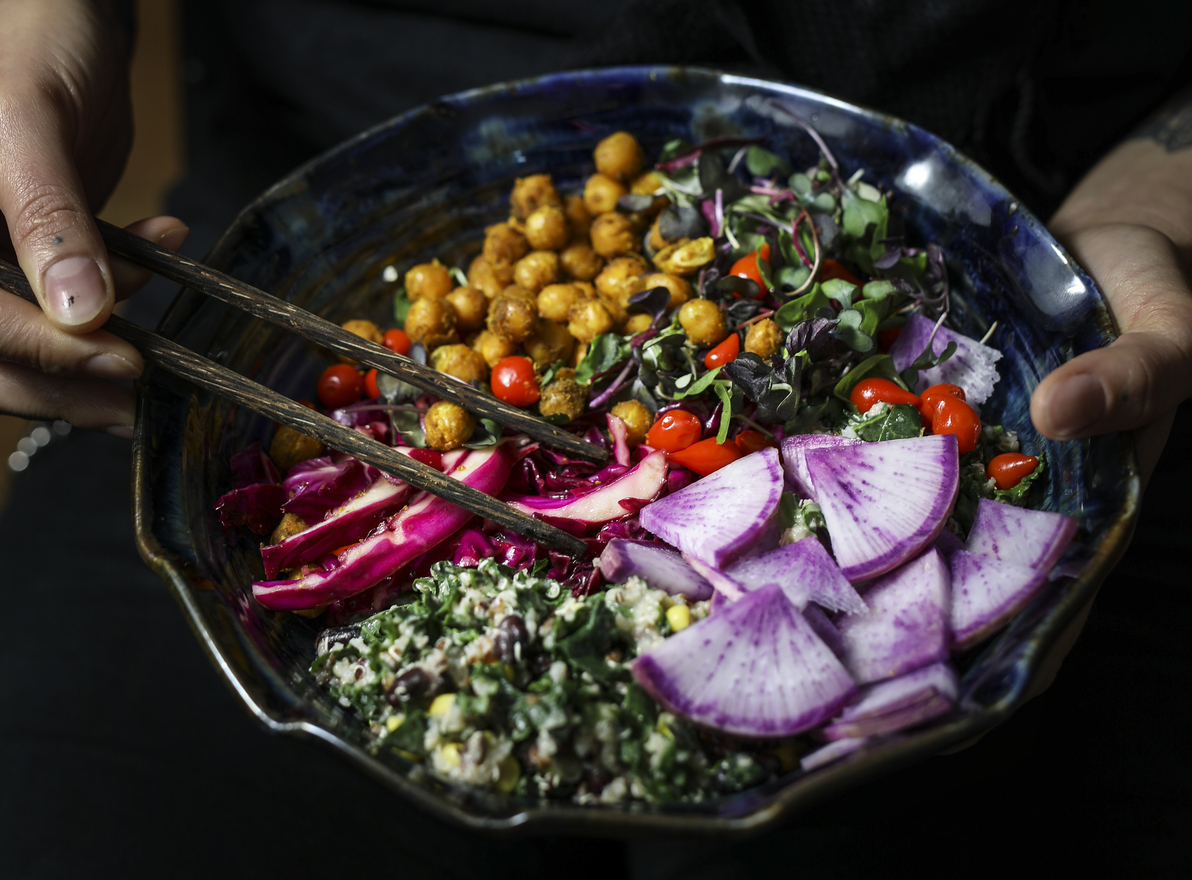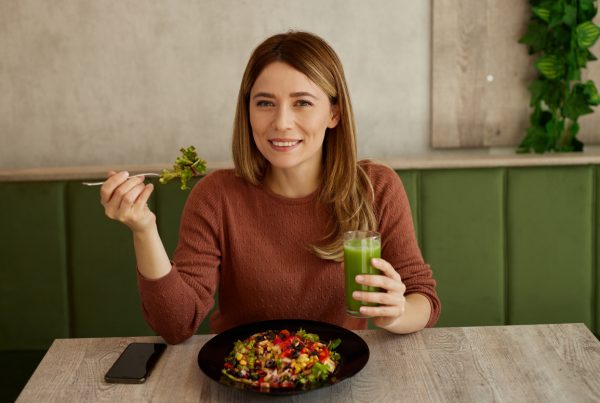As we head into 2025, Dr Linia Patel (PhD, RD) finds herself fielding a familiar question: “What nutrition trends should we expect in the new year?” Here, she looks at the 2025 diet trends and outlines what you need to know.
The wellness landscape is constantly evolving, with new trends reshaping how we approach health and fitness. Some trends are forecasted by market researchers, analysts and industry experts, while others emerge unpredictably on social media in the form of ‘influencers’, often disappearing as quickly as they arise. These trends, whether fleeting or transformative, directly influence everyday food choices and the way clients approach their health.
For fitness professionals, staying ahead of the curve isn’t just helpful – it’s a necessity. Understanding what’s driving your clients’ choices can help you provide better guidance and debunk misinformation. Let’s dive into what’s on the horizon and prepare to stay ahead of the curve.
Meat-less meals
The trend: The movement towards eating less meat is no longer a niche trend but a mainstream shift. With growing awareness of environmental sustainability and animal welfare, more people are adopting plant-based diets or reducing their meat consumption altogether. Flexitarianism – eating mostly plant-based foods while occasionally including meat – is on the rise, and meat alternatives are seeing unprecedented popularity.
The science: Research supports this shift, showing that diets higher in plant-based foods and lower in animal products can reduce the risk of chronic diseases like heart disease, diabetes and certain cancers. Additionally, plant-rich diets are better for the planet, significantly reducing greenhouse gas emissions compared to meat-heavy diets. However, it’s essential to balance plant-based eating with adequate protein, iron and vitamin B12, often found in meat, and to remember that high-quality protein, whether animal or plant based, is the key!
My verdict: Eating less meat is a 2025 diet trend that’s backed by both science and sustainability. While I don’t advocate for everyone to go fully vegetarian or vegan, I encourage incorporating more plant-based meals into your diet. Focus on whole foods like legumes, nuts, seeds and vegetables while ensuring you meet your nutritional needs. Whether for health, ethics or the planet, eating less meat is a step in the right direction.
Sharper brains
The trend: As life expectancy increases, more people are prioritising not just living longer but living healthier – especially when it comes to brain health. This growing interest in preserving memory, focus and overall cognitive function has driven a surge in brain-focused diets and supplements. From ‘superfoods’ to nootropics, the quest for mental sharpness is trending.
The science: What we eat plays a pivotal role in maintaining cognitive health. Research highlights the importance of foods rich in nutrients like choline, omega-3 fatty acids and antioxidants for brain health. Choline, found in eggs, fish and broccoli, supports memory and learning, while omega-3s from oily fish protect brain cells and reduce inflammation. Additionally, a Mediterranean-style diet, high in fruits, vegetables and whole grains, has been linked to a lower risk of cognitive decline and Alzheimer’s disease.
My verdict: Investing in your brain health through nutrition is a smart and necessary choice, especially as we age. Simple dietary adjustments – such as including choline-rich foods like eggs and broccoli, alongside omega-3-packed fish or L- theanine-packed green tea – can have a profound impact on cognitive longevity.

Low-alcohol drinks
The trend: The demand for low-alcohol and non-alcoholic beverages has skyrocketed in recent years, with an increasing number of people opting to cut back on alcohol consumption. From alcohol-free beers to sophisticated mocktails, these drinks are becoming staples at social gatherings and on bar menus. Consumers are embracing the sober movement, driven by a desire for better health, mindfulness and balance.
The science: Reducing alcohol intake offers numerous health benefits, including better sleep, improved liver function and reduced risk of chronic diseases. Non-alcoholic options provide a way to enjoy the social aspect of drinking without the drawbacks. Advances in beverage technology now mean that these drinks deliver on taste, making it easier to switch without feeling deprived.
My verdict: Low- and non-alcoholic drinks are no longer just a trend – they’re becoming a lifestyle choice for many, including myself! They cater to those who want to prioritise their health while still enjoying being social. Cheers to a healthier way to raise your glass!
The transparent plate
The trend: Transparency in food labelling is more than a buzzword – it’s a growing demand among consumers. People increasingly want to know what’s in their food, where it comes from and how it’s made. The rise in awareness around ultra-processed foods and their potential negative effects on health has pushed many to seek out clearer, simpler ingredient lists and more natural options.
The science: Studies suggest that diets high in ultra-processed foods are linked to health issues like obesity, cardiovascular disease and metabolic dysfunction. Transparent labelling helps consumers make informed choices, steering them towards foods that are minimally processed and closer to their natural state. Knowledge empowers healthier decisions and transparency fosters trust between brands and their customers.
My verdict: The call for a transparent plate isn’t just a passing trend – it’s a movement towards accountability and empowerment in the food industry. As consumers, we deserve to know what we’re eating and how it affects our bodies. Brands that embrace this shift are not only aligning with consumer values but also contributing to a healthier, more informed society. But remember, not all ultra-processed foods will have the same nutritional profile! Scientists need to get better at entangling the foods that are clumped in this group.
Eating your food scraps
The trend: Reducing food waste has become a key focus for environmentally conscious consumers. With food prices rising due to climate change’s impact on agriculture, many are choosing to value quality over quantity, using every ingredient to its fullest potential. From repurposing leftovers to embracing ‘wonky’ produce, the movement to waste less and eat smarter is gaining traction.
The science: A mind-boggling stat is that food waste accounts for a staggering 10% of the global carbon footprint – more than the entire airline industry! When food is wasted, the resources used to produce it, such as water, energy and labour, are also wasted. Additionally, food waste decomposing in landfills generates methane, a potent greenhouse gas, further exacerbating climate issues.
My verdict: Reducing food waste isn’t just an environmental imperative – it’s also a practical and economical choice. By planning meals more thoughtfully, embracing leftovers creatively and opting for sustainable purchasing habits, we can all play a part in tackling this issue. Waste less, and you’re not only helping the planet but also making your kitchen more efficient and your wallet will thank you!
Take-home message
There’s no one-size-fits-all when it comes to diet, food or exercise routines. What works for one person may not work for another, so it’s crucial to focus on personalised, sustainable approaches for long-term success. Be wary of anything presented as the ‘ultimate’ answer, as we all have unique needs. What are your personal 2025 diet trends?
Tempted to eat more plant-based? Check out Dr Linia’s blog on where to start with a plant-based diet.
Further reading
- Mwdawar E et al (2019), The effects of plant-based diets on the body and the brain. A systematic review, Translational Psychiatry, 9: 226.
- Firth J (2020), Food and mood: How do diet and nutrition affect mental wellbeing? BMJ,
- Merra G, Noce A, Marrone G et al (2020), Influence of mediterranean diet on human gut microbiota, Nutrients,
- Rahman et al (2022), Impact of nutrition in brain function and development: Potential brain foods, Int J Surg., 106908.
- Beckdash (2024), Epigenetics, nutrition and the brain: Improving mental health through diet, Int J Surg., 25(7): 4,036.








